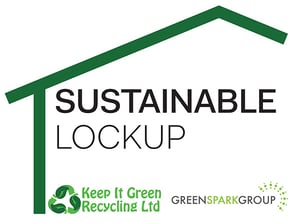The Sustainable Production Forum & Sustainability in the Film Industry

#greenproduction #greenfilm #sustainability #sustainablefilm #gogreen
“The average person generates about 7 tonnes of carbon a year. A single film technician typically generates 32 tonnes per year.”
– Melanie Dicks, co-founder of Greenshoot
This post about sustainability in the film industry is a natural extension of the last two climate-related posts we wrote on carbon offsetting and the Global Climate Strike. As Front Row cares about the environment and improving sustainability in the entertainment industry, it only made sense to become a sponsor of the Sustainable Production Forum (SPF), which focuses on challenges and solutions to greening the motion picture and entertainment industry.
Sustainability Issues in the Film Industry
First, what do we mean by sustainability? The basic definition is “the ability to continue a defined behavior indefinitely.” But here, we’re talking more specifically about environmental sustainability, which is defined as “the rates of renewable resource harvest, pollution creation, and non-renewable resource depletion that can be continued indefinitely. If they cannot be continued indefinitely then they are not sustainable.” –Thwink.org
“Entertainment, as a sector, has always lagged behind in incorporating sustainability.” –Zena Harris, President, Green Spark Group
Mountains of plastic water bottles or landfill-bound sets are not uncommon for big-budget shoots. A single mid-sized TV series can consume up to 57,000 water bottles and 810,000 sheets of paper per season.
A large TV series or film feature can be expected to consume construction material (over 900 tonnes for a large feature; 3,000 tonnes for a blockbuster) and gasoline (up to 175,000 litres for a large TV series).
All these numbers add up to a significant environmental sustainability challenge for the entertainment industry.
Examples of Sustainable Production Programs & Initiatives
In BC, sustainable production dates back to the 2006 creation of Reel Green, which provides tools and information for companies wishing to produce motion pictures in an environmentally responsible manner.
NBC Universal launched their “Green is Universal” initiative in 2007 along with a Sustainable Production Program and Green Production Guide. Green is Universal is NBC’s ongoing green initiative dedicated to raising awareness, effecting positive change to the environment and substantially greening its own operations.
In 2009, Green Screen Toronto published Green Practices Handbook [PDF], one of the first industry reports to note cost savings due to sustainable practices on large feature films.
 Keep it Green Recycling and Green Spark Group created the Sustainable Lockup in May 2017; the initiative has redistributed “well over 100 tonnes of set materials” — including windows, doors and flats. Sustainable Lockup also has a program to get leftover food from on-set catering to people who need a meal.
Keep it Green Recycling and Green Spark Group created the Sustainable Lockup in May 2017; the initiative has redistributed “well over 100 tonnes of set materials” — including windows, doors and flats. Sustainable Lockup also has a program to get leftover food from on-set catering to people who need a meal.
The British Academy of Film and Television Arts (BAFTA) has been a leader in helping transition the UK’s entertainment industry to environmental sustainability.
The set of UK short film The Blue Door (2017) was designed and built using 100% recycled and reclaimed materials – even down to the screws. Once filming was over, all of the set was returned to the production designer’s prop centre, where it could be hired back into the industry and repurposed for future productions.
How Sustainability Benefits Industry & Society
The Amazing Spider-Man 2 employed an eco-manager who helped reduce bottled-water use. A typical 60-day film shoot can save upwards of $6,000 just by eliminating plastic water bottles. Similarly, Tomorrowland employed an environmental steward and achieved a 91% waste diversion rate from landfills by following a comprehensive zero waste initiative.
The Man in the High Castle’s third season reportedly saved over $50,000 by implementing sustainable production practices, including simply switching from single water bottles to larger ones and having people bring their own bottle.
Green Spark Group works with producers to establish and meet sustainability goals. On average, Green Spark claims to save producers it works with some $73,000. Working with Green Spark in 2015, The X-Files diverted more than 81% of its total waste from landfills, achieving US$41,000 in overall cost savings.
Environmental activists in the entertainment industry – including SPF – are pushing for the adoption of zero-emission vehicles (ZEV). The Government of Canada has even set ambitious federal targets for ZEV reaching 10% of light-duty vehicle sales per year by 2025. The use of ZEV instead of vehicles that emit exhaust gas of course benefits the industry and society as a whole through less pollution. In BC, 95% of electricity is generated from renewables – mainly hydro. It costs $2.10 to charge a Tesla Model 3 to drive 100 km. By comparison, it costs approximately $23 in gas to run a typical V6 sedan for 100 km. ZEV vans and light-duty trucks will save productions significant dollars in fuel costs.
Attend SPF (Sustainable Production Forum)
Interested in learning more about greening the film industry? The Sustainable Production Forum focuses on the pressing issue of sustainability within the motion picture and entertainment industry. Learn more at https://www.sustainableproductionforum.com/
As climate change becomes increasingly urgent, all industries need to take up the flag of sustainability and create collaborative solutions to reduce our collective footprint.
SEE ALSO:
SUSTAINABLE SETS & GREEN FILMMAKING – THE FUTURE OF POWER IN FILM
Citations:
- https://www.bcbusiness.ca/Its-a-Good-Thing-Green-Spark-Group-puts-the-spotlight-on-the-environment
- https://medium.com/asparagus-magazine/is-there-hope-for-the-film-industry-to-become-reel-green-3fbf5ba11578
- https://www.greenproductionguide.com/sustainability-could-play-leading-role-in-the-film-industry/
- https://eco-age.com/news/how-dresd-fighting-film-industrys-waste-problem
- https://www.corporateknights.com/channels/workplace/lights-camera-compost-14315004/
- https://www.nrcan.gc.ca/energy-efficiency/energy-efficiency-transportation/zero-emission-vehicle-infrastructure-program/21876
- https://www.greensparkgroup.com/

Share your thoughts on this post